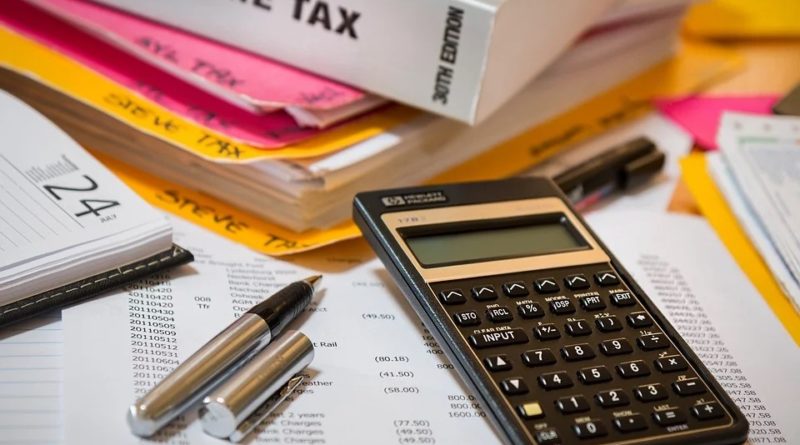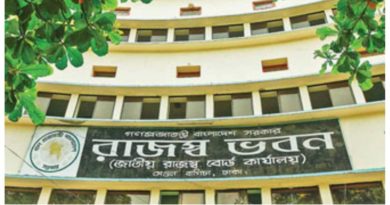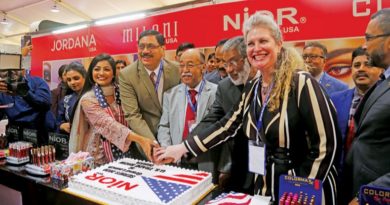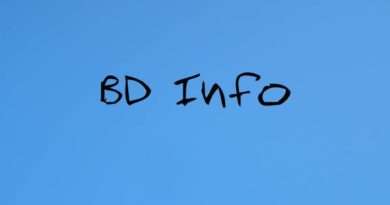DCCI seeks hike in tax-free income limit
The Dhaka Chamber of Commerce and Industry on Wednesday demanded an increase in the tax-free income limit for individual taxpayers in the upcoming national budget for the fiscal year 2020‑2021 and a gradual reduction in corporate income tax over the next three fiscal years.
The DCCI made the demand in its budget proposal for FY21 placed before the National Board of Revenue on the day.
DCCI president Shams Mahmud handed over the proposals to NBR member (income tax policy) Md Alamgir Hossain.
DCCI senior vice-president NKA Mobin was also present on the occasion.
The chamber said that the tax-free ceiling on the incomes of individual taxpayers should be raised to Tk 3 lakh from the current Tk 2.5 lakh‑ceiling, which has remained unchanged since FY2015-2016.
Cost of living has increased significantly while the purchasing power of consumers has declined over the years as point-to-point inflation has risen by 22.59 per cent since FY2016, it said.
The trade body also recommended that the NBR should introduce a new lowest slab of income tax rate at 5 per cent from the current 10 per cent rate to encourage people to pay taxes.
The chamber also recommended that corporate tax for all corporate bodies should be reduced gradually by 5 per cent, 7 per cent and 10 per cent in FY21, FY22 and FY23 respectively.
The existing corporate income tax rate is 25 per cent for companies listed on the stock markets, 35 per cent for non-listed companies, 37.5 per cent for banks, insurance and non-banks financial institutions listed on the stock markets, 40 per cent for non-listed banks, insurance, NBFIs and listed mobile operators and 45 per cent for non-listed mobile companies.
The DCCI argued that the reduction in the corporate tax would facilitate capital formation, reinvestment and expansion of businesses.
The trade body also requested the revenue board to slash the tax rate on incomes of corporate dividends to 10 per cent from the existing 20 per cent.
Withdrawal of advance tax imposed on raw materials and machinery used in manufacturing industries is required to encourage export‑oriented manufacturing and export diversification, it said.
During the meeting with the NBR, Shams Mahmud sought the implementation of a fully automated and digitised income tax returns submission system to reduce the taxpayers’ hassle and attract more taxpayers to file tax returns.
The Dhaka Chamber also demanded a VAT rebate facility for traders who paid VAT at different rates, instead of at 15 per cent.
Mahmud said that a VAT system that without any provision for rebates might fuel inflation.
According to the existing Value-Added Tax and Supplementary Duty Act-2012, traders who file VAT returns at the 15-per cent VAT rate enjoy rebate facility while those who file VAT returns at 5 per cent, 7.5 per cent and 10 per cent VAT rates do not get the benefit.
Under the VAT system, traders do not pay VAT but rather collect the indirect tax from consumers and deposit the sum to the government exchequer.
The trade body also asked for a specific definition of ‘material’ to be included in the VAT and SD Act-2012 and VAT and SD Rules-2016 as the act and the rules currently did not contain a definition of the term.
Mahmud also requested the revenue board to increase the turnover limit for small and medium-entrepreneurs to Tk 4 crore from the current limit of Tk 3 crore.
He also sought a special tax exemption facility for local manufacturing of sub‑station machineries and other related accessories in order to facilitate the import substitute backward linkage industry in the power sector.
The DCCI requested the NBR to take the current coronavirus pandemic into consideration while formulating the
upcoming budget so that the government, mass people, the private sector and all other stakeholders can get the best instrumental policies. (Source: New Age)




